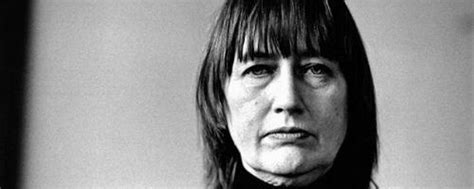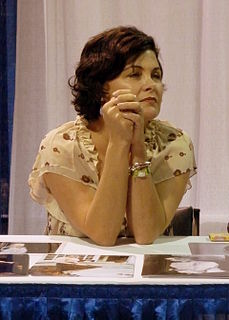A Quote by Quentin Tarantino
Novelists have always had complete freedom to pretty much tell their story any way they saw fit. And that's what I'm trying to do.
Related Quotes
The ideas always have to be in service of the story. And that's what Scott and the writers did - they weren't trying to beat you over the head with an idea; they had a story they wanted to tell, and they had ideas, so they used the story as a way of fleshing out the ideas. It all depends on where they want to go with it.
I don't have any one way to tell a story. I don't have any rule book of how it's supposed to be done. But I've always said that if a story would be more emotionally involving told, beginning, middle, and end, I'll tell it that way. I won't jigsaw it, just to show what a clever boy I am. I don't do anything in my script just to be clever.
I know that my tendency is to be linear, and I'm trying to find ways to subvert that. And so in 'Bellocq's Ophelia' my device for subverting it was to tell the story and then to tell it again; it always circles back to this one moment, and it's not linear, but it's round in that way, and much of 'Native Guard' is like that.
To be honest, I've always had far too much freedom. I had a job when I was 10. I started living on my own when I was 17 or 18. I've earned my own money; I've traveled the world. What would I rebel against? I've had so much freedom, sometimes it was hard. My parents wanted to protect me, but they had no idea how to. I had to learn as I went and make my own mistakes. I went from being totally unknown and never acting professionally to being in a major movie and being very famous. It all happened so quickly, I didn't have any time to work things out. It's been pretty scary at times.
There's an old poem by Neruda that I've always been captivated by, and one of the lines in it has stuck with me ever since the first time I read it. It says "love is so short, forgetting is so long." It's a line I've related to in my saddest moments, when I needed to know someone else had felt that exact same way. And when we're trying to move on, the moments we always go back to aren't the mundane ones. They are the moments you saw sparks that weren't really there, felt stars aligning without having any proof, saw your future before it happened, and then saw it slip away without any warning.
A story is a way to say something that can't be said any other way, and it takes every word in the story to say what the meaning is. You tell a story because a statement would be inadequate. When anybody asks what a story is about, the only proper thing is to tell them to read the story. The meaning of fiction is not abstract meaning but experienced meaning.
I'm not sure that all books aren't that way. I think that might apply to any book I was writing. The book was kind of the product of this enormous infatuation I had, not only with the office and office politics, but with perspective, and trying to tell a story from as wide a range of perspectives as you possibly can. I tried to capture it all with the first-person plural, but once I settled on that, I used it to tell the story from as many angles as I could. I guess, to put it romantically, it was about a love affair with the craft of perspective.
I believe in the complexity of the human story, and that there's no way you can tell that story in one way and say, 'this is it.' Always there will be someone who can tell it differently depending on where they are standing ... this is the way I think the world's stories should be told: from many different perspectives.
Boxing Helena was something that I think was pretty cool, but people judged it without even having seen it. It's not perfect, but I think for the story that we were trying to tell, it turned out pretty good. What it signified was really powerful to me: how society puts us in boxes one way or another.






































